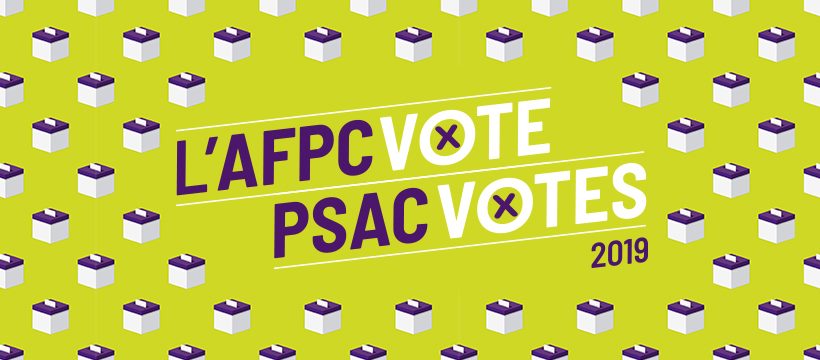Expressing political opinions on social media: your rights

Members, particularly those who work for the Government of Canada, have asked us if they can share PSAC’s PSAC votes 2019 campaign material through social media.
Freedom of expression
Union members and all employees have a right to freedom of expression protected by the Charter of Rights and Freedoms, even if they work for the federal government. Expressing political opinions or sharing political content on social media is a form of political expression and is protected by the Charter. Online political expression does not benefit from any greater or any less protection than other forms of political expression. As a public service worker, you have the right to share content from our campaign on your personal Facebook, Twitter or other social media accounts as long as you do so outside of your hours of work and you don’t use the employer’s equipment.
However, these rights are not absolute, so please consider the following carefully before you post, share, or tweet.
Things to consider
- Don’t identify yourself as a government employee or include information or comments that suggest you are a government employee
It is important not to give the impression that you are speaking on behalf of the employer when communicating political opinions or posting political content on social media. We recommend that if you are going to engage in communications that are critical of the employer, make it clear that you are speaking on your own behalf. One way to do this is to remove any information in your social media profile that identifies you as a government employee or that may lead the public to believe you are a government employee. Usually, this information is in the in the “About” section of your Facebook or Twitter profile, which you can edit.
- Be careful not to criticize government policies that are directly related to your job or department
Public service workers who criticize government policies directly related to their work are more likely to fall under scrutiny for potentially breaching their duty of loyalty to their employer. However, public service workers who are criticizing government policies that are not connected with the nature of their work or that of their department benefit from a greater scope of freedom of expression.
- Consider your level of visibility and influence
Before engaging in a specific political activity, consider the following:
- Your visibility: Do you hold a highly visible and public position? Are you a senior public service employee or a public service worker with little to no public visibility?
- Your duties and responsibilities: Do you intend to criticize a government policy that is directly related to your work or the work of your department? Or, is your criticism limited to government policies that are not linked to your work?
- Your level of influence: Do you have a significant degree of authority and influence?
- Your tone and how long you intend to sustain the criticism: Do you intend to use a measured and reasonable tone or will you use derogatory language and a vitriolic tone over a sustained period of time?
- If you hold office in a union at a local, regional or national level.
Federal public employees holding jobs with a higher level of responsibility, influence and visibility may be more easily perceived as being politically partisan and more limited in what they can say publicly. For example, a senior public service worker who is a spokesperson for a government department might want to think twice about sharing political content about government policies on social media as it could be considered a breach of the government’s “conflict of interest”, “code of conduct” or values and ethics policies.
The tone and frequency of your political expression are also important factors. Employees should be cautious in engaging in a sustained media campaign against the government. Avoid comments that could be construed as being malicious, vitriolic, false or discriminatory. Keep in mind that although you have the right to political expression, you cannot conduct yourself in a way that adversely affects your ability or the public’s perception of your ability to do your job in an impartial and professional manner.
- Are you a union representative?
Union representatives have greater freedom to engage in political activities. When speaking on behalf of the union, they can vigorously challenge government policies openly and critically on issues such as cuts to public services. They should be able to freely circulate PSAC votes 2019 social media content. Protected union speech cannot be considered a violation of the Values and Ethics Code. However, union representatives cannot make any comments about their employer or employer representatives that are reckless, malicious, dishonest or discriminatory.
For more information
You have the right to be politically active
If you have any questions or concerns, please contact your local union representative, your component office or your nearest PSAC regional office.
